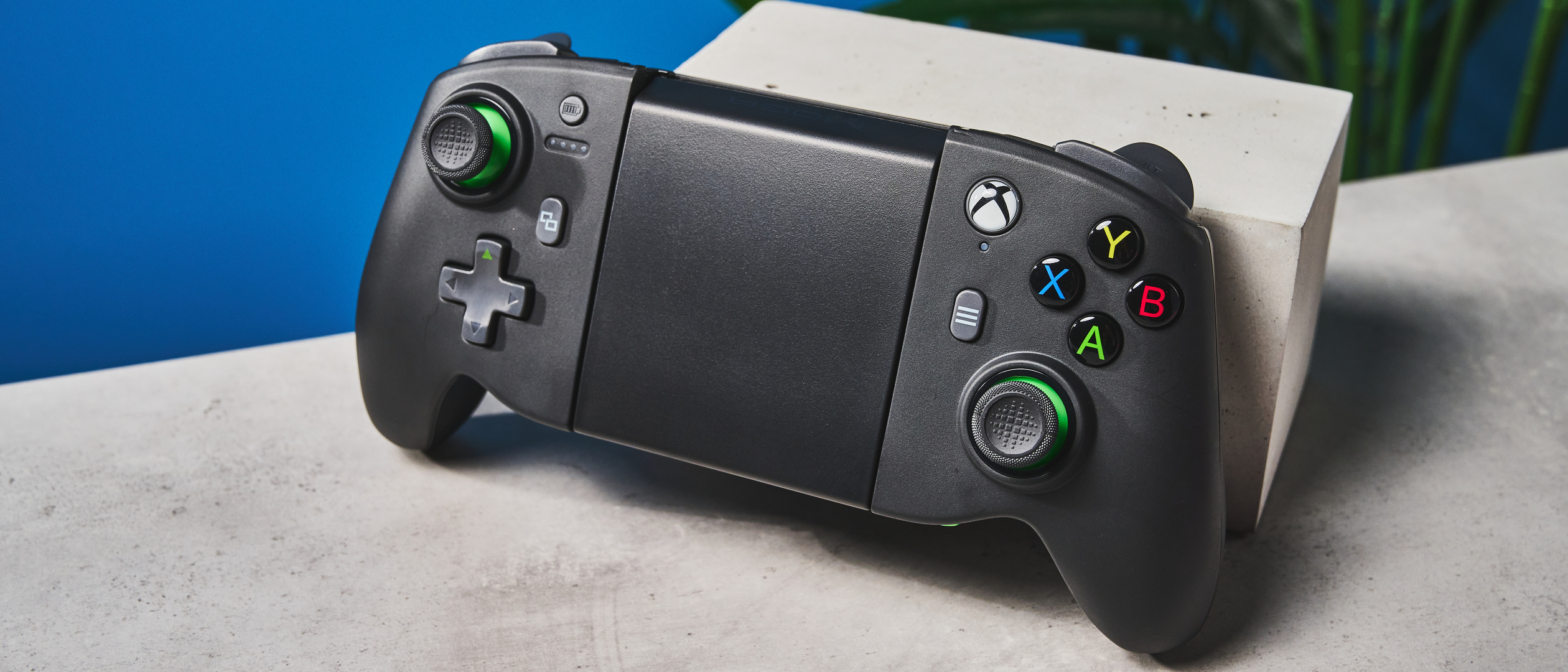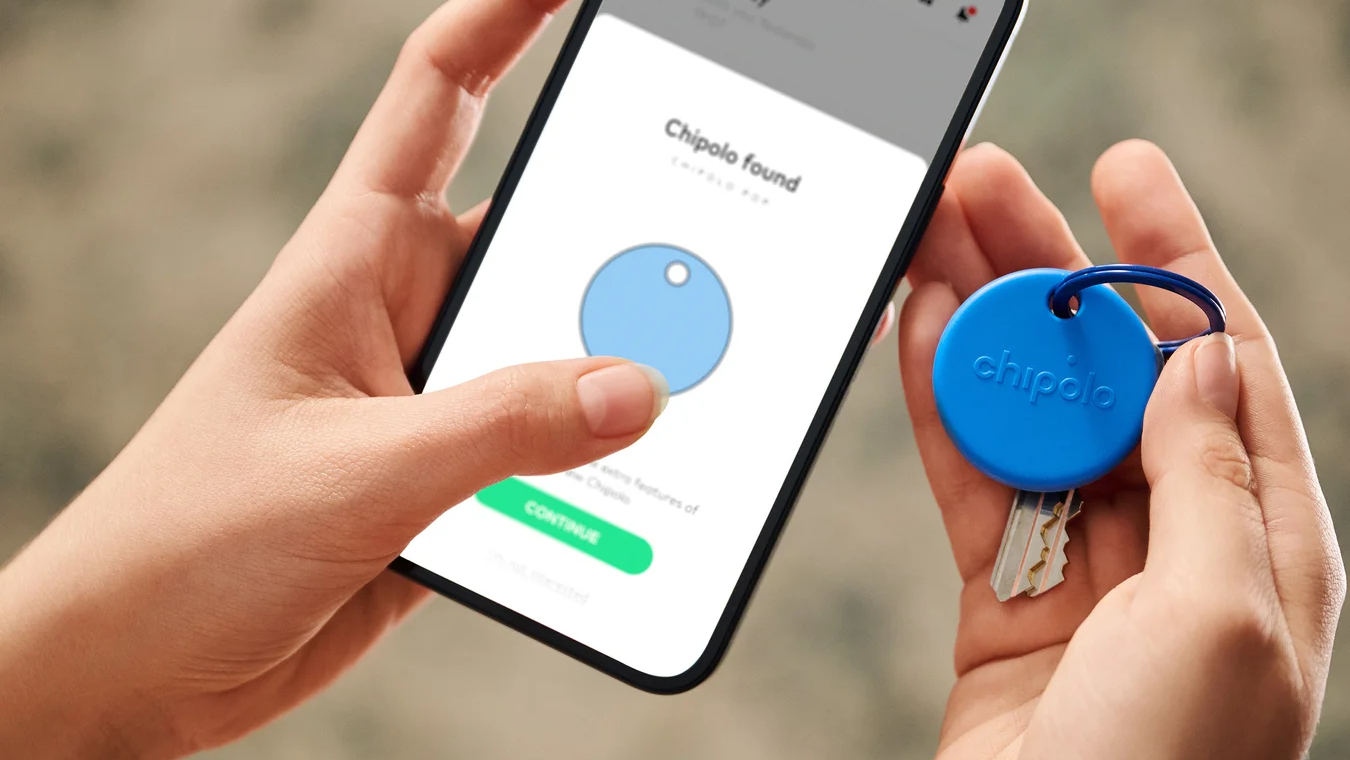Tom's Guide Verdict
The XP7-X Plus competes with top tier controllers like the Razer Kishi and Backbone One, but unfortunately doesn’t reach the standard of quality needed to justify its price tag. This is an average at best controller, even though its adjustable center phone mount worked great for mobile gaming, with an ill-conceived button layout and a cheap plasticky build that was a pain to use. Some compatibility issues made me less enthusiastic about coming back to the XP7-X Plus any time soon too.
Pros
- +
Better than touchscreen gaming
- +
Relatively comfortable in hand
- +
Adjustable phone mount
- +
Built in portable charger
Cons
- -
Cheap-feeling build
- -
Poor button positioning
- -
Expensive
- -
Compatibility issues
Why you can trust Tom's Guide
I have recently started gaming more on my Google Pixel 7a, loving the wealth of games from big-budget blockbusters like Call of Duty: Mobile to classics like Castlevania: Symphony of the Night. As a PC user, I sometimes find it hard to adjust to using touch controls, so I have long sought out one of the best phone controllers.
Unlike its rivals, the Backbone One ($99) and the Razer Kishi V2 ($99), the XP7-X Plus uses a full sized controller as its foundation — the grips are designed like a regular Xbox controller, albeit slightly smaller and with cheaper materials. This sets the XP7-X Plus apart from the competition, opting for the iconic Xbox layout rather than a Nintendo JoyCon-esque design as seen on the Backbone One or Kishi. An adjustable phone mount in the middle of the controller provides an easy way of using it with just about any make or model of smartphone.
Unfortunately, this is about all the positives there are to say about the XP7-X Plus. The off-puttingly cheap build quality combined with serious issues getting the controller to work, even with highly popular titles, prevented me from getting the most out of this controller.
Read on for my full PowerA MOGA XP7-X Plus review.
PowerA MOGA XP7-X Plus review: Cheat Sheet
- What is it? An Xbox-style controller for mobile phones and PC, with an adjustable phone mount
- Who is it for? Anyone who wants to upgrade their gaming experience on mobile, and those who struggle with or dislike touchscreen gaming
- What does it cost? It’s quite expensive, at $99 or £79 on Amazon
- What do we like? The built-in wireless phone charger is very convenient, and the phone mount works as an interesting approach to mobile gaming
- What don’t we like? The price is too high for what you get — a cheap Xbox controller with a telescopic phone mount in the middle. It was tricky to get working on PC, and some games did not work at all for me.
PowerA MOGA XP7-X Plus review: Specs
| Layout | Xbox ABYX |
| Buttons | 19 |
| Connection | Mobile USB-C, Wired USB, Bluetooth |
| Battery | 2000 mAh |
| Colors | Black |
| Platforms | Android, iPhone, PC |
| Weight | 12.3 ounces |
| Size | 4 x 8 x 2.2 inches |
PowerA MOGA XP7-X Plus review: The ups
The controller does a few things well — for the most part, it functions perfectly fine as an upgrade to your phone’s touchscreen. All of the buttons work in a variety of games, and the flexibility in configuration allows for Bluetooth and USB wired gameplay is a big plus.
Design
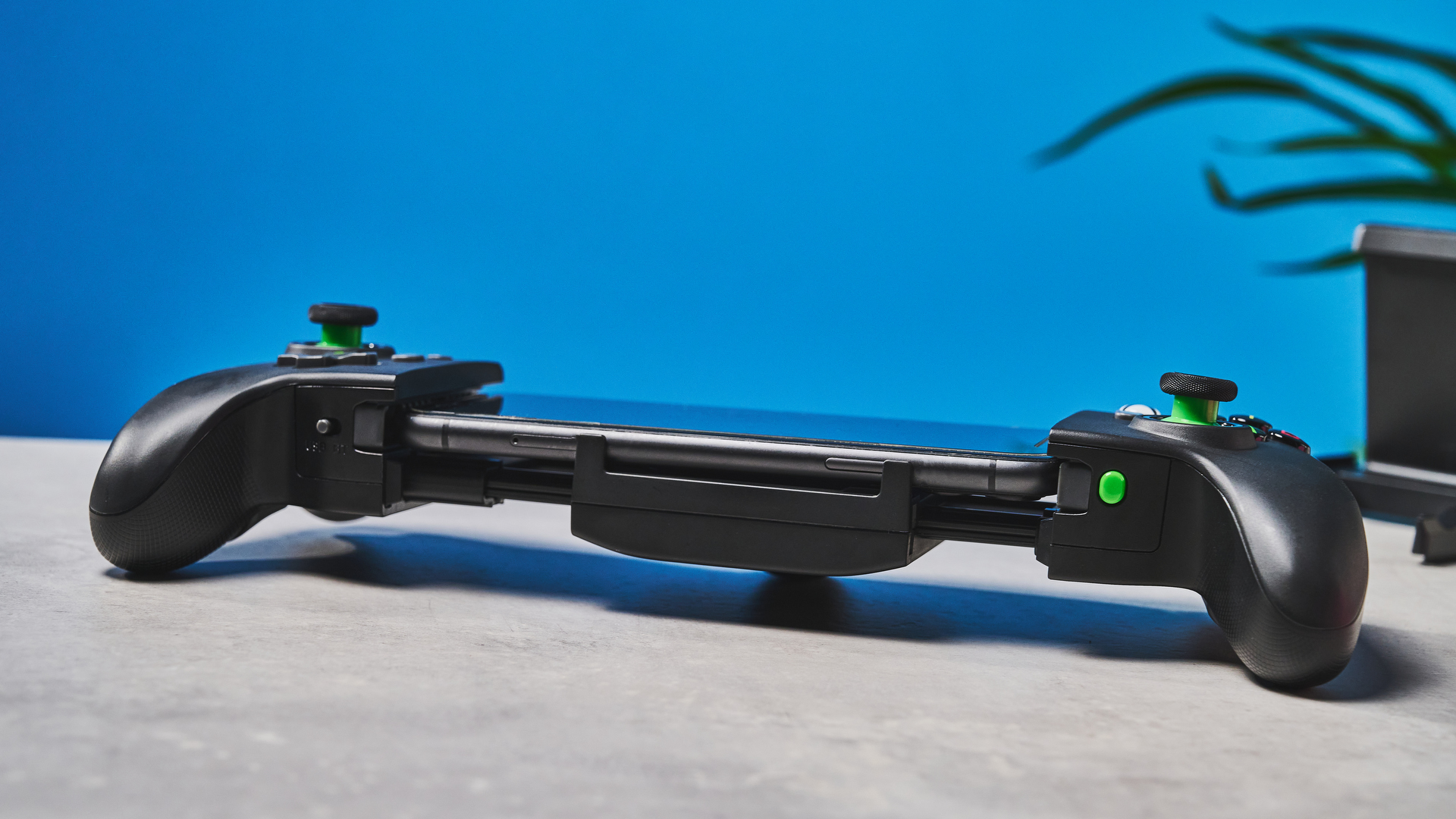
The XP7-X Plus is designed in a very similar style to modern console controllers, utilizing the Xbox ABXY and asymmetrical joystick format — this is also a licensed Xbox-branded pad, so it features an Xbox home button. The controller is quite thick around the grip and the back, doing away with the thinner, more portable designs employed by other mobile controllers. The extended length of the controller doesn’t feel uncomfortable in use, though those with smaller hands might struggle due to the size of the grips when compared to a regular controller.
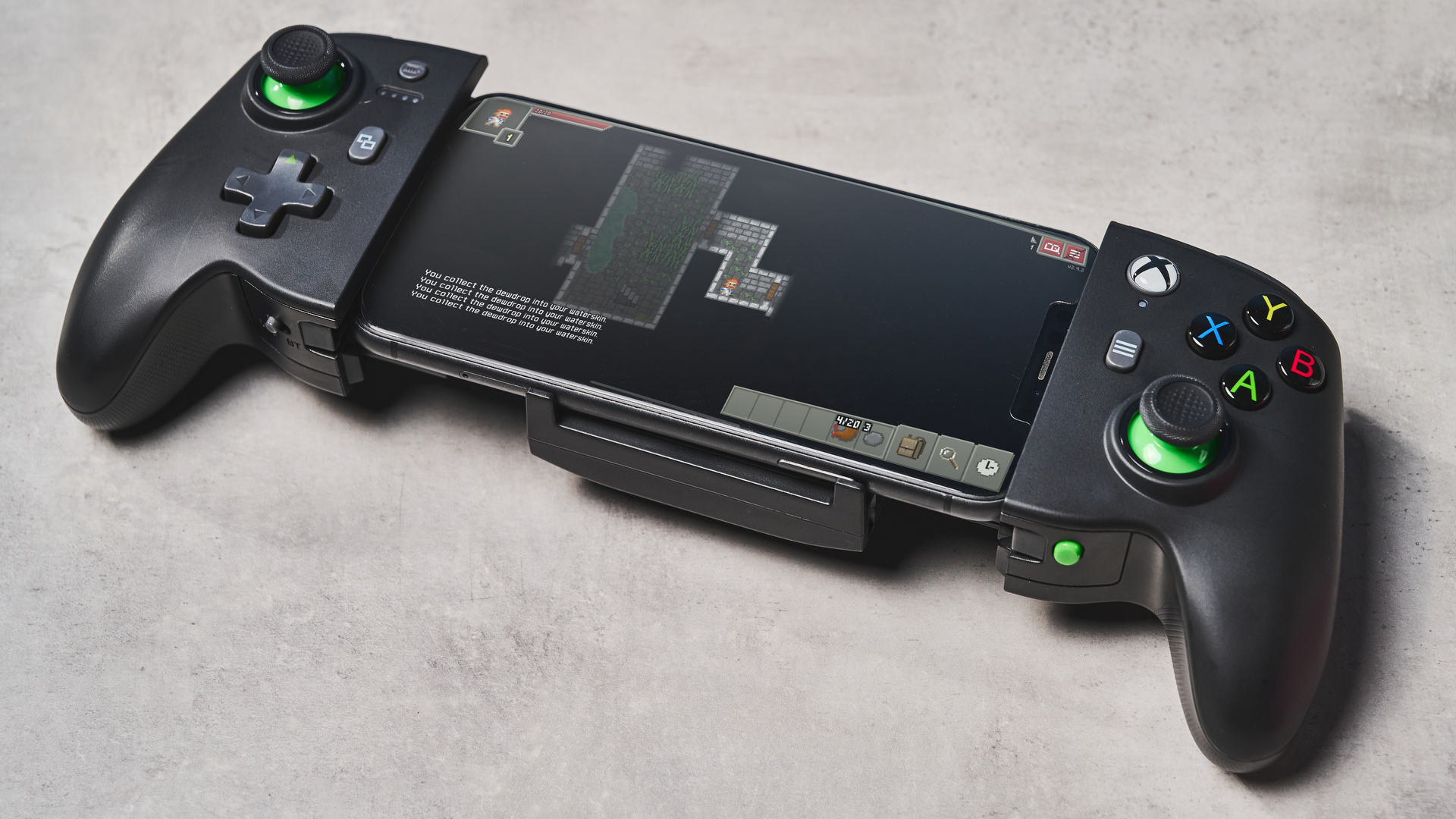
The controller‘s phone mount supports both Android or iPhone devices, up to 7.13 inches long. There are no ports on the inside, unlike the Kishi and Backbone One, which is disappointing as it means Bluetooth pairing is required even while mounted. My Pixel 7a fits perfectly, and feels very secure even when turning the controller upside down, held in by the force of the two grips. The controller comes with a phone stand which can be stored on the unit when not in use, making it great for travel.
Gaming on mobile
I tested the controller in Asphalt, where the controller was responsive and I was able to enjoy winning races a lot more than with the game’s simplistic touchscreen controls. Castlevania: Symphony of the Night worked excellently too, with native controller support that detected and correctly mapped to the XP7-X Plus. The buttons are loud though, which I found especially problematic when repeatedly hitting my attack button, with a clacking noise making the controller less than ideal for quieter environments.
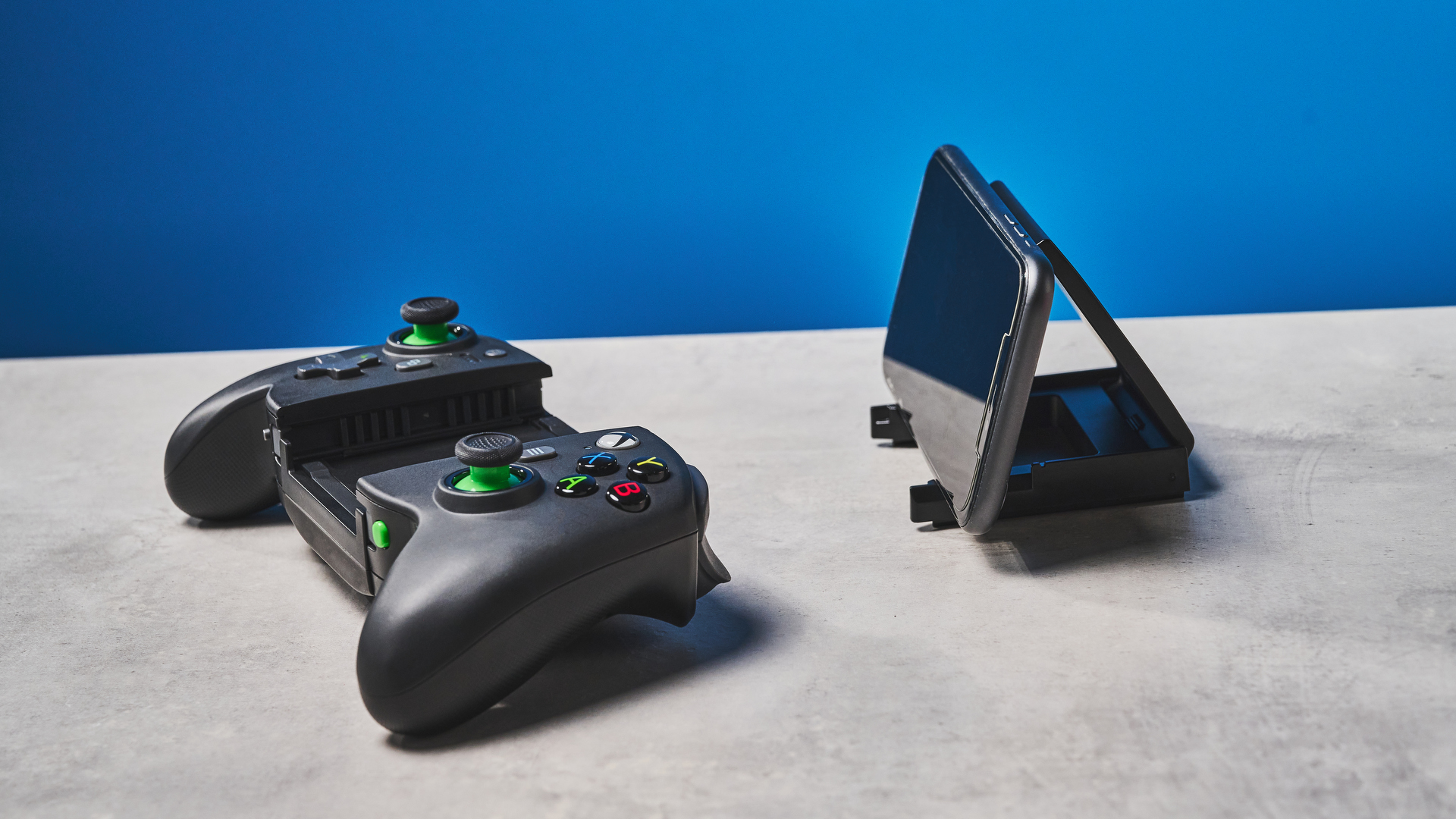
The XP7-X Plus worked flawlessly with Steam Link, too. Using the controller with the app running was smooth sailing, and allowed me to play games from my Steam Library while away from my desk. This was particularly useful for RPGs like the classic Final Fantasy VII or, a more recent favorite, Fear and Hunger 2: Termina, which were not particularly held back by the smaller screen and slower latency of my phone. Being able to use both the thumbstick and the D-pad was great, although I would have liked a clickier D-pad for retro games.
It works on PC, too
I predominantly play on PC, so I tested how the XP7-X fares as a PC controller. After connecting it directly to my PC with Bluetooth, the controller was not plug and play-ready with Steam, even though I usually have no problems using third party controllers or my PS4’s DualShock 4. Despite the Xbox licensing and buttons, my PC would not detect the XP7-X Plus as an Xbox controller — I had to go through Steam’s manual setup feature to force the controller to be detected.
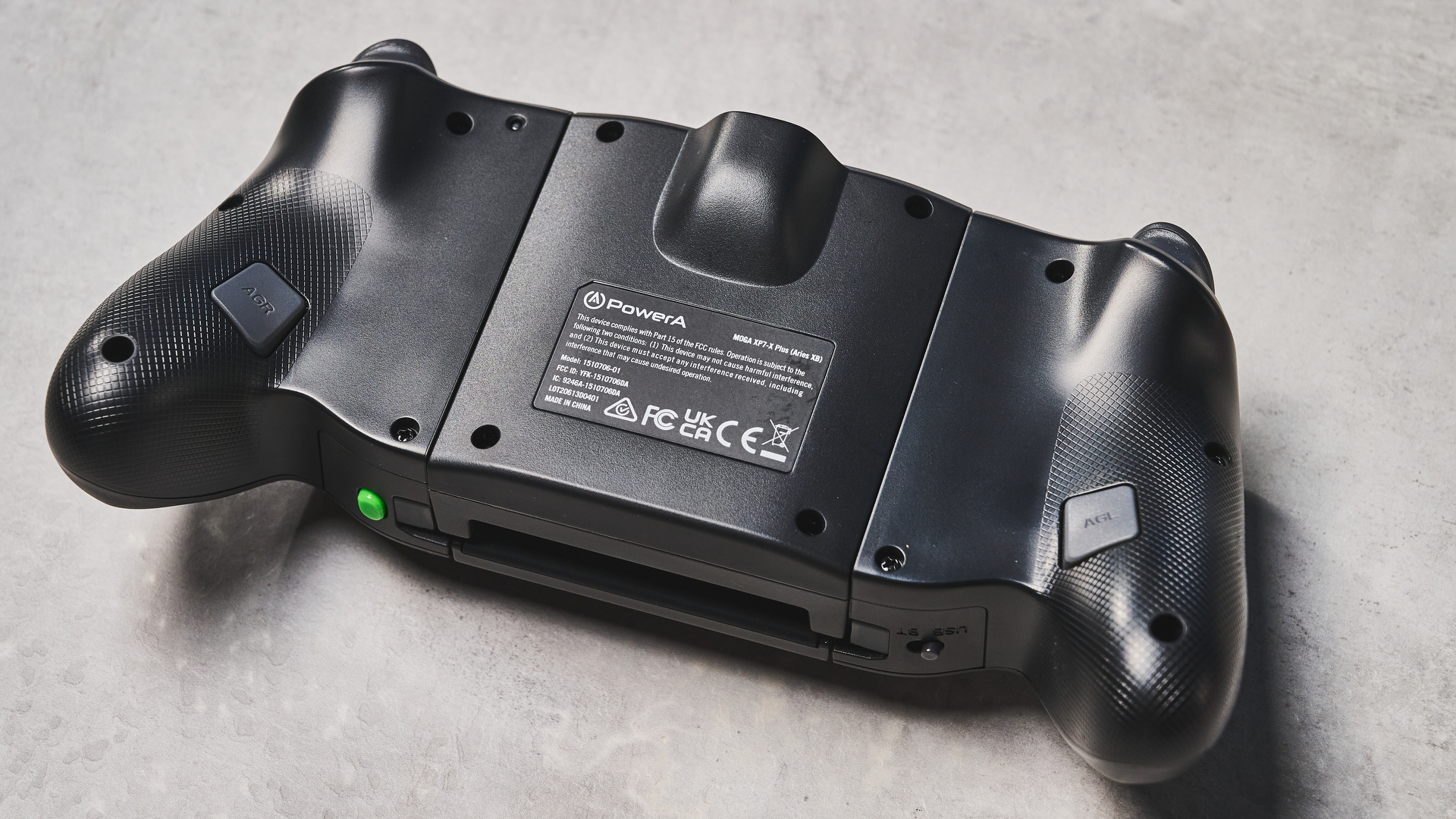
I used the controller for some low-poly kart racing in Nightmare Kart, and a session of Hitman. In Nightmare Kart, the controller performed just as well as during my Asphalt playtests — the controller mapped perfectly to the Xbox layout supported by the game, and I encountered no issues.
Hitman required a bit more work, with the built-in controller scheme not working for me. I had to enable Steam Input instead of using the built-in software controls. This essentially forces the game to ignore the controller, so be warned that some games may pick up the XP7-X Plus in an abnormal way.
Additional Features
The most convenient feature is easily the built-in wireless charger, which is able to be toggled on and off via a switch. If your phone supports wireless charging, this has a capacity of about 2,000mAh. While it comes at the cost of a fairly weighty unit in the middle of the controller, it is great to be able to charge when playing high performance games that are a big drain on battery life. My phone did start to overheat from using the charger even when idle, which is something to watch out for.
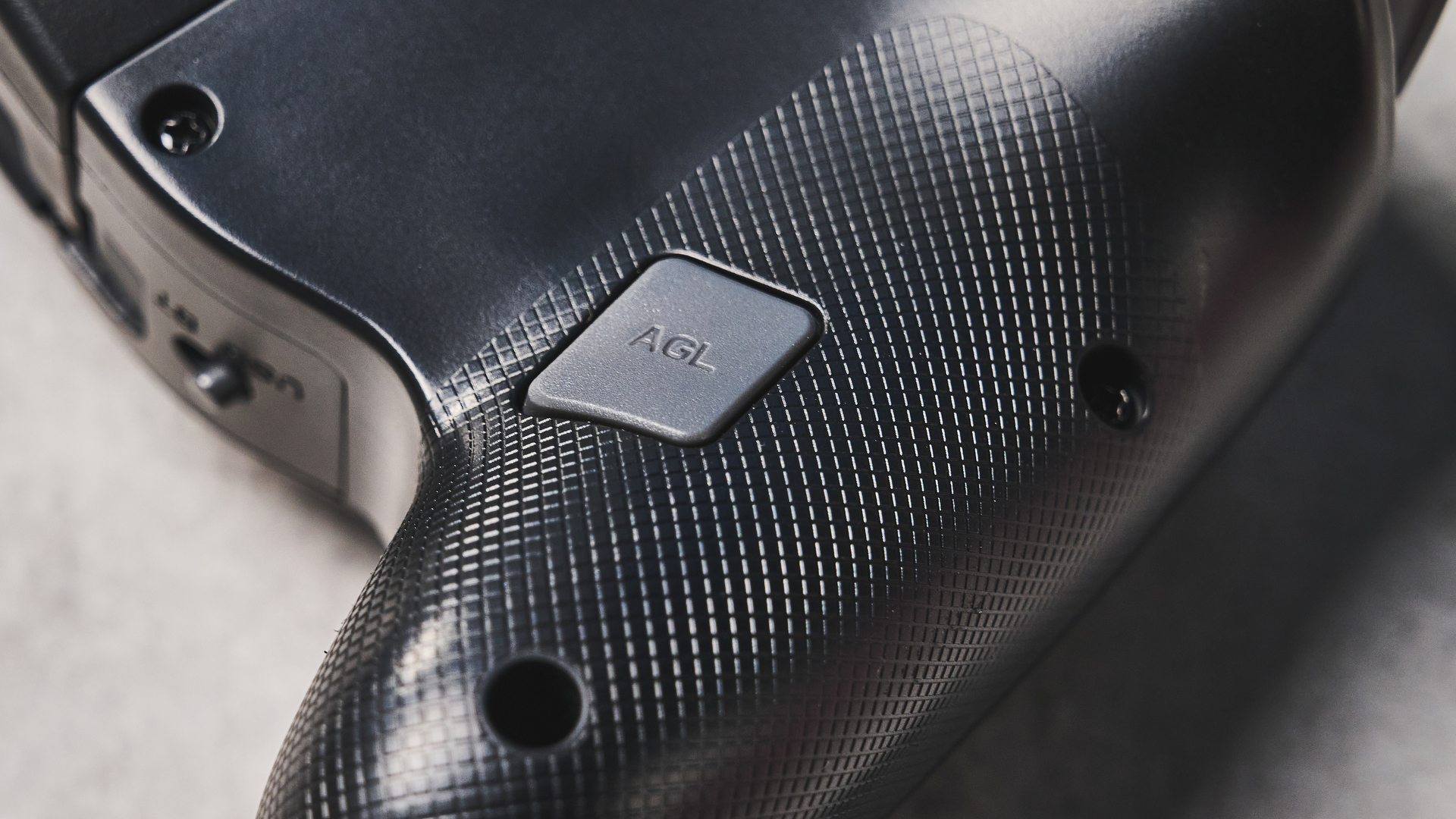
The 2,000mAh powerbank also acts as the controller’s own power source, which you can check via a dedicated display. For me, this offers less flexibility than the Backbone One, which uses a small amount of power from the phone battery, but this will really boil down to personal preference.
PowerA MOGA XP7-X Plus review: The downs
The XP7-X Plus feels closer to a budget controller than a premium gamepad, with a cheap plastic build. This controller tries to compete with other high-end mobile controllers like the Razer Kishi V2 and the Backbone One, but falls short in build quality by comparison. Annoying problems with the layout and compatibility round off a rather disappointing controller.
Weak Build
The XP7-X suffers from generally poor build quality, with the unsubstantial plastic not feeling good to hold for long periods. The handles of the controller are not long enough, so despite mimicking the look and feel of a controller, it falls flat versus the best PC gaming controllers, with an uncomfortable grip.
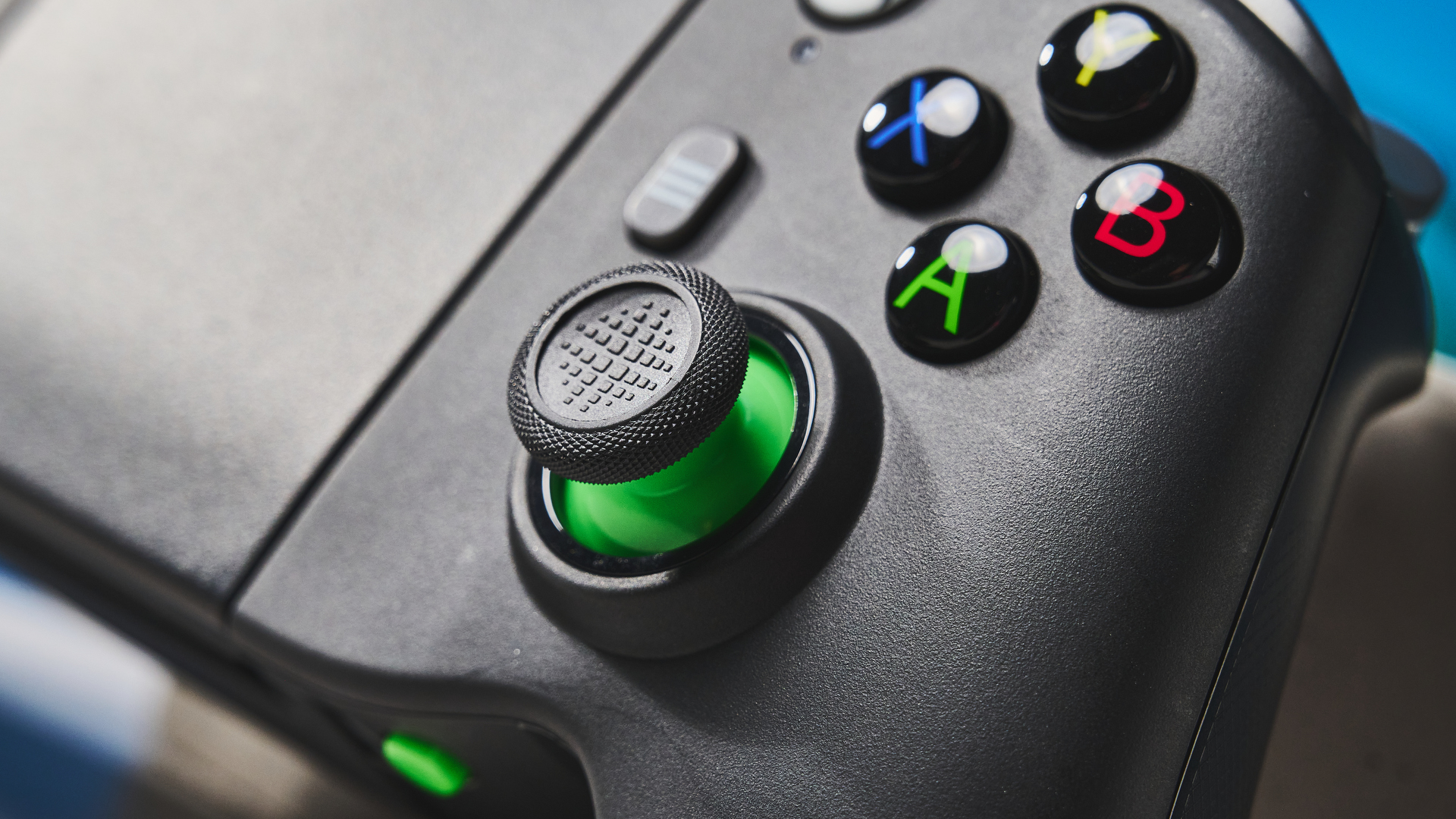
As much as I like the back bridge phone mount, there is no lock on the sliding mechanism, meaning you have to pull it open and try to force your phone in before it shuts — I got my fingers caught on the telescopic mount a few times, and found myself longing for a better mechanism, as on the Backbone One, which uses interchangeable magnetic mounts.
I am also concerned about the back bridge’s durability, as it is prone to bending, particularly when trying to maneuver a phone into position — this is something that the Razer Kishi V2 does a lot better, with a suitably sturdy plastic bridge for peace of mind. While my phone was secure when mounted, there was also an awful lot of flex while playing, as the back bridge was not strong enough to keep steady, in part due to the size and weight of the portable charger unit.
The XP7-X is compatible with iOS too if you’re running iOS 17, however the mount for the phone frustratingly overlaps with iPhone’s volume buttons — which means using the controller in mounted mode to utilize the wireless charging feature will constantly adjust your phone's volume and cause a headache.
Input woes
I don’t like the triggers on the XP7-X Plus, which require a forceful press and don’t feel responsive in-game. In Hitman, firing my weapon felt particularly unsatisfying, and my heavy weapon swings in Elden Ring felt very underwhelming, with a lack of precision. For the same price as the XP7-X, you can pick up the Gamesir G8 Galileo ($99, Amazon), which features Hall Effect magnetic switches in its analog sticks and triggers — these are much more responsive, and actuate with a lighter press.
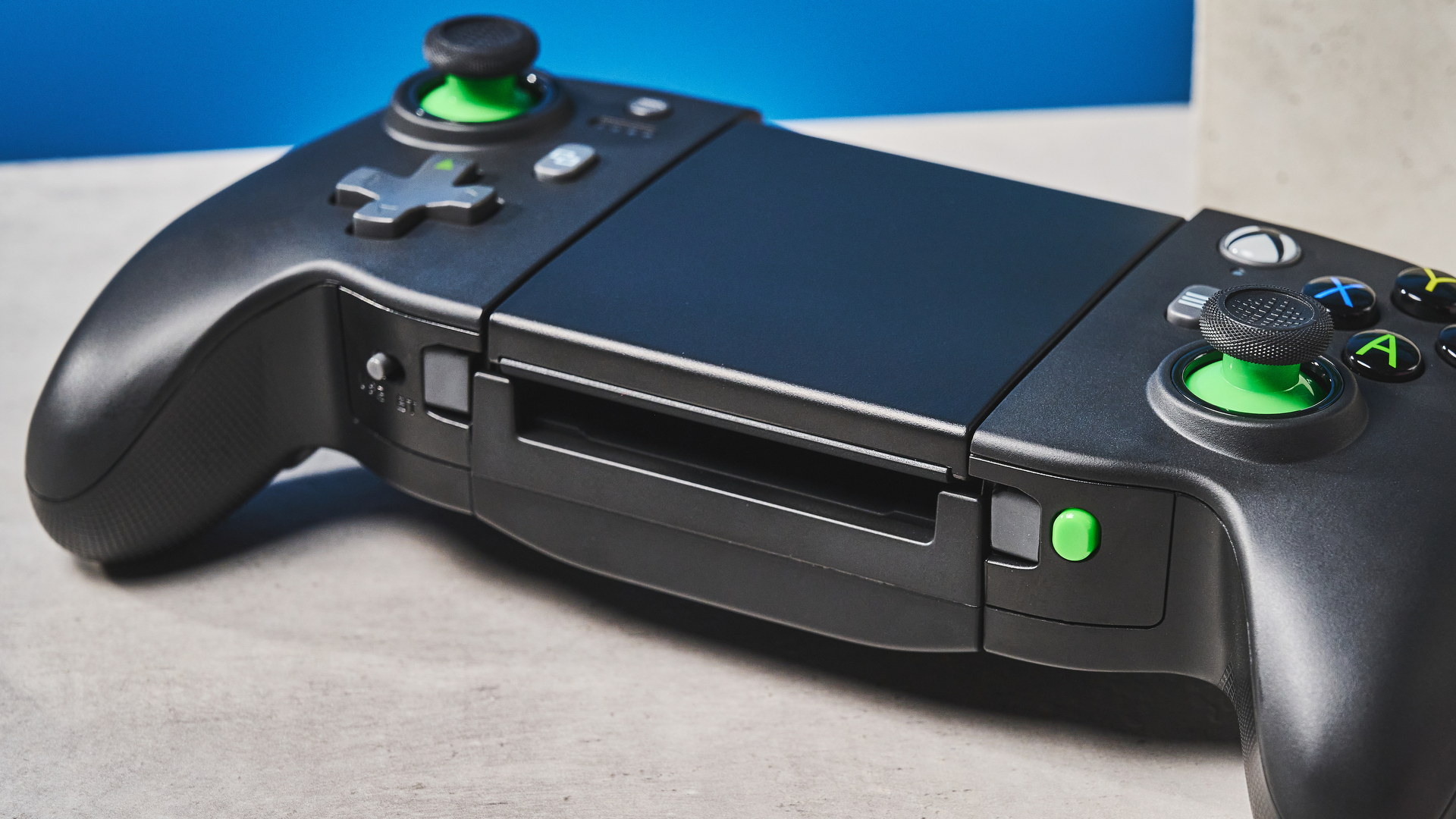
The face buttons are also problematic — they’re a little soft to press, but most of my issues stem from their positioning. The A button, the most commonly used button across most games, is far too close to the right thumbstick. My thumb practically had to push the thumbstick to one side in order to press down on it, or hold the controller at an off-angle. It’s disappointing to see such a major layout issue in a controller at this price.
Compatibility
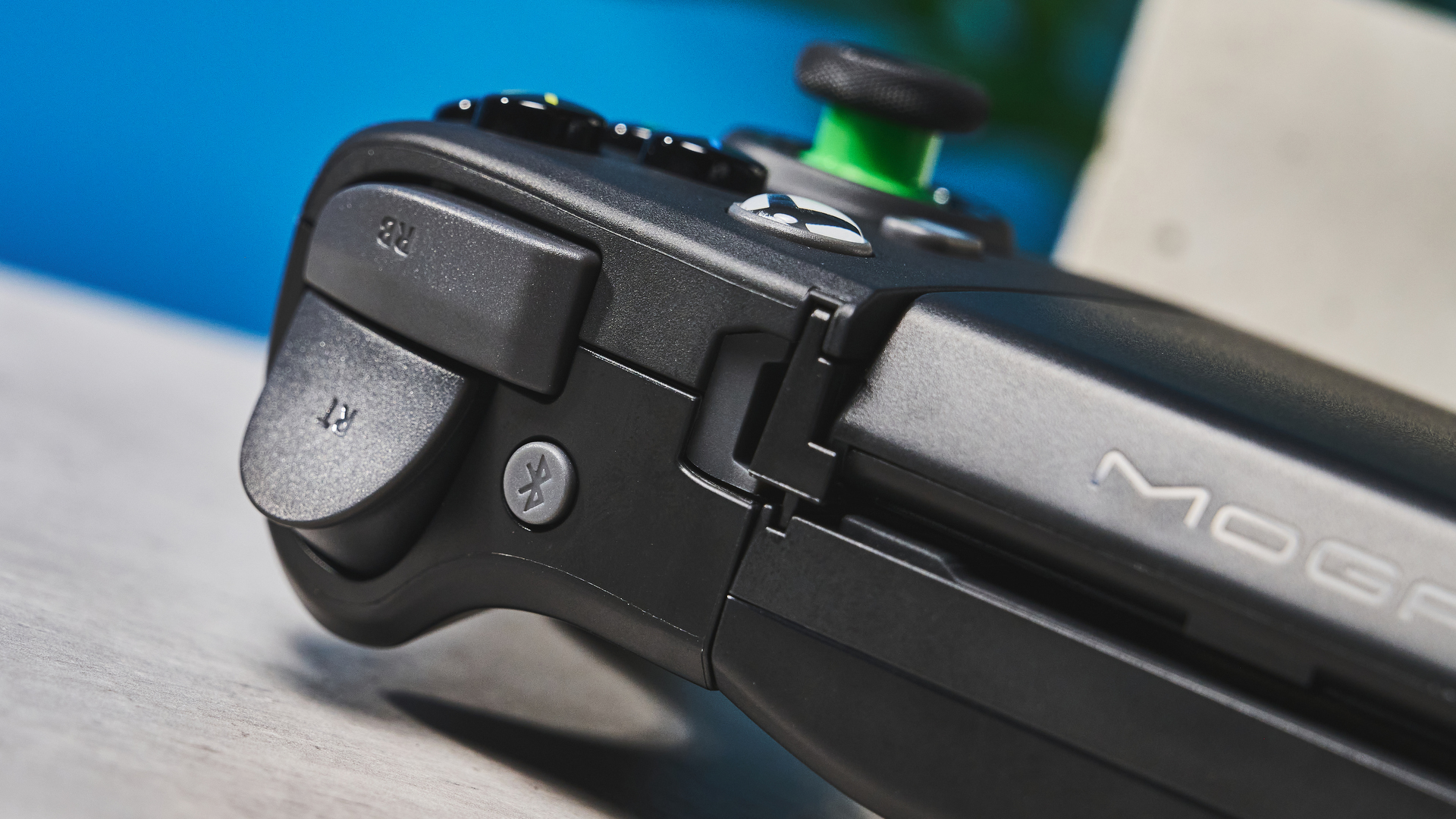
I ran into some compatibility issues while using the XP7-X Plus. I was keen to try out the controller on Call of Duty Mobile, a game that greatly benefits from having a controller hooked up, and I have long used my DualShock 4 for an easy advantage in-game. Unfortunately, the XP7-X Plus was not detected in either wired or Bluetooth mode, and I was not able to get it working.
PowerA MOGA XP7-X Plus review: Verdict
The PowerA MOGA XP7-X Plus is a mixed bag. It provides a convenient way to game on the go, but a combination of a subpar build, compatibility problems and frustrating buttons make the $99 asking price feel rather unjustified. It’ll make you question just how much you want to sacrifice for the perks of a built-in phone mount.
The poor build quality and mushy buttons are my biggest bugbear. Cheaper controllers like the Gamesir Kaleid ($46), which features satisfying, Hall Effect switches on the triggers, plus tactile, responsive face buttons, put the XP7-X Plus to shame.
Sadly, the XP7-X Plus fails to compete with its similarly priced rivals like the Backbone One and Razer Kishi . If this was a sub-$50 controller, it would be much easier to look past some of the weaknesses as a convenient and easy way to upgrade your mobile gaming experience. As it stands, you would be much better off opting for one of the XP7-X Plus’ rivals.

Eve is a Staff Writer on the Reviews team at Tom’s Guide. Her expertise centers around computing, and she loves testing out the very best high performance peripherals to help you make the right choice. With her experience working in IT and a love for gaming, she has an eye for function and efficiency— this is reflected in the time spent building and customizing her own desktop PCs. In her downtime, Eve is always on the lookout for new tech to give her a competitive edge in the latest games, or a boost in her daily productivity.
